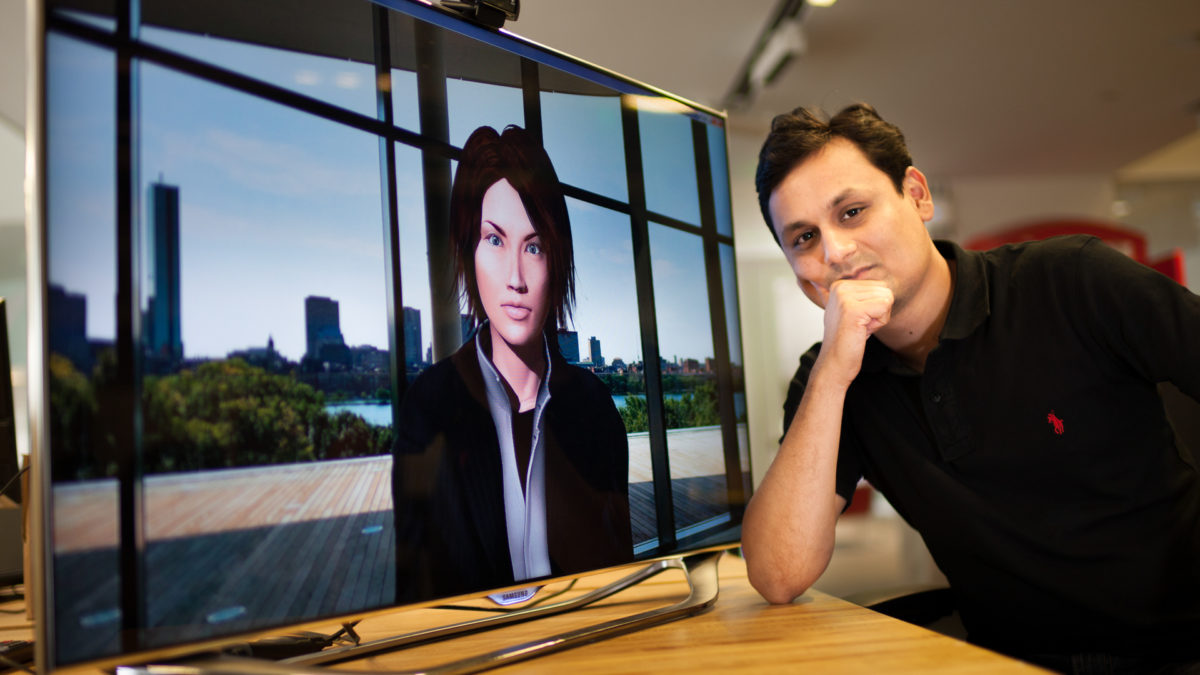Good publicity helped draw attention to grant-worthy project
Ehsan Hoque had just defended his PhD dissertation at MIT in 2013 when he returned to his desk and found a voice mail from DARPA, the federal Defense Advanced Research Projects Agency.
Officials at the agency had read a news story about Hoque’s automated coach to help people with disabilities improve their social and speaking skills. They wanted the young computer scientist to drop by and give a talk.
Hoque put DARPA on hold for three months to wrap up his affairs at MIT and move here to become an assistant professor in the Department of Computer Science.
After he gave his talk, a DARPA program manager said, “we’d like to fund your work” to the tune of $120,000. “That was the first month of my appointment,” Hoque adds.
Since arriving here two summers ago, Hoque has been the PI or co-PI on total of nine applications that have been approved for about $6.6 million, including:
A Google Faculty Research Award
A Microsoft Azure Award
An NSF CRII pre-CAREER award
An Army Research Lab grant
A University Research Award (Co-PI)
An NSF National Research Traineeship Award (Co-PI)
A DARPA Communicating with Computers Challenge grant in collaboration with the Florida Institute for Human and Machine Cognition (PI for the Rochester portion)
An NSF Eager grant.
The role played by some good publicity in that first award from DARPA is not lost on Hoque. The coverage generated by news releases “had broader outreach compared to my research paper. I hate to say this, but the general public rarely reads research papers. They read a news story or a technical review.”
Read more at http://www.rochester.edu/research/researchconnections/october-23-2015.html

